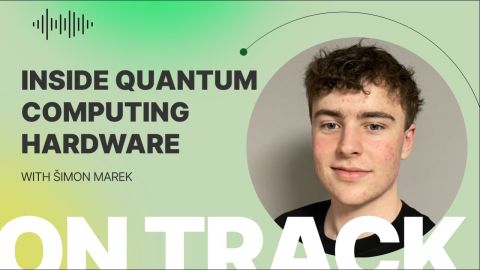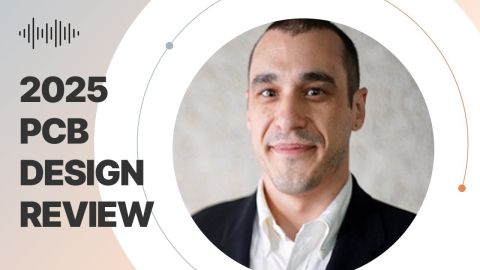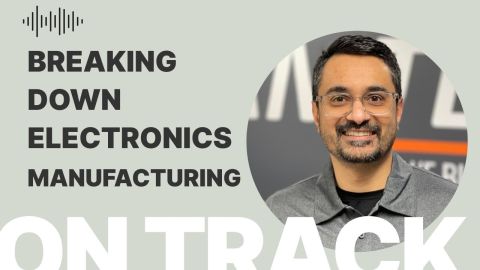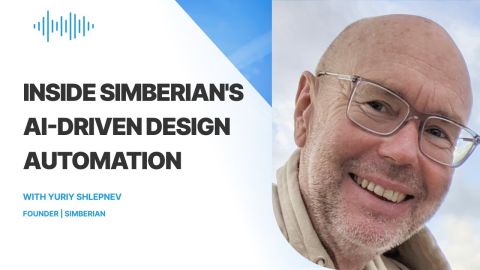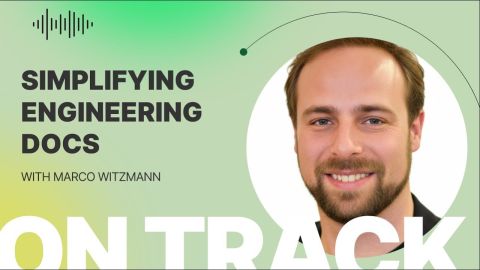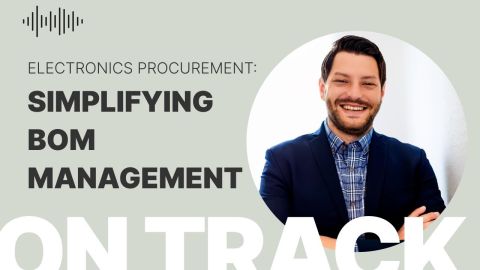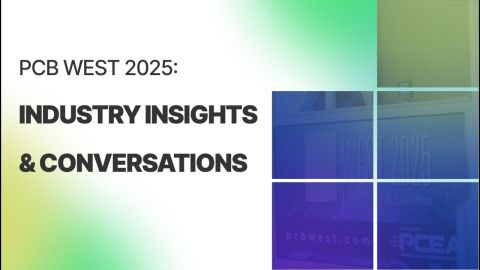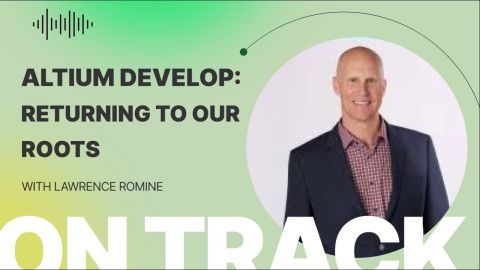Firing Your Hiring Habits by John Mitchell, President and CEO of IPC

We have a seasoned favorite guest in the podcast today. John Mitchell the President and CEO of IPC talks about his new book Firing Your Hiring Habits.
This is a very insightful conversation! We tackled acquisition, retaining and upskilling talents in your team. PCB designers, aspiring entrepreneurs and leaders in any company will surely benefit from this discussion. Make sure to watch through the end and check the additional resources below.
Listen to this Podcast:
Watch this episode:
Show Highlights:
- Introduction to John Mitchell and his new book, Fire Your Hiring Habits
- John Mitchell shares his inspiration about writing the book and revealed who he wrote it for
- The two fundamental problems in building a team are one, acquiring the right talents, and second retaining them
- The key to retention is helping employees aspire for a career and providing them with a pathway to reach a higher goal
- “Upskilling” is also a significant factor to retaining employees especially now that we have AI’s that manage automated processes
- How is the rise of remote jobs affecting the job industry?
- A lot of people are going “hybrid” appropriate for specific positions, and found it to be very effective. Working from home 75% of the time and face to face for the rest have increased productivity and employee retention
- Human connection like in a team building can strengthen the team and can result to much better working relationships
- Does the challenges in employee turnover related to age? John has a very eye opening answer to this
- The longest chapter in John’s book talks about “company’s culture”. He explains in detail what makes a company’s culture and how sticking to principles can have a great impact to a company
- “There are always going to be limitations, but within the right limitations, there are freedoms you can afford by eliminating some things that it's just a matter of constantly asking yourself the question, "Why are we doing it this way? Why did this come about and does it still apply today?" If it does, great, we're going to keep doing it. That's an aspect we need to keep.” - John Mitchell
- Leadership loves people that brings answers
- John encourages everyone to learn from every experience, good and bad
- Talents leave, but they’ll come back to a company that matches their culture
- To sum it all up, John stresses the importance of knowing exactly the talents you need, and when you find them create an environment that works for them. Lastly, invest on them through trainings and give them room and path to grow
- “Fire your Hiring Habits” is available at Barnes & Noble. All proceeds goes to IPC Education Foundation
Links and Resources:
- Watch Previous Podcast Episode with John Mitchell
- Read Related Articles:
- Connect with John Mitchell via LinkedIn
- Get the book Fire Your Hiring Habits by John Mitchell
Transcription:
Dr. Mitchell:
I share different tactics and techniques about new ways to find organizations. Right now unemployment is very, very low. Right? And if there aren't people unemployed, how are we going to find people? Well, we dispel some of that myth in the book about the unemployment number as well as there's an underemployment number that actually has a lot more people available.
Zach Peterson:
Hello everyone and welcome to the Altium OnTrack podcast. I'm your host, Zach Peterson. Today I'll be speaking with Dr. John W. Mitchell. Audience members should know him as President and CEO of IPC. Dr. Mitchell just recently released a new book and I'm very excited to talk with him about it today. John, thanks so much for joining us.
Dr. Mitchell:
My pleasure, Zach. Good to be on here.
Zach Peterson:
So I have the new book right here. The book is Fire Your Hiring Habits. So audience members who of course know you as president and CEO of IPC should probably know that of course IPC is a very well known industry trade association for the electronics industry. And I think if they look at it through that lens, they might be a bit surprised that you would write a book on this particular topic. So I wanted to give you an opportunity to talk about who is the target audience and why did you write this book?
Dr. Mitchell:
Sure. So the target audience broadly is anybody that is hiring or leading or working with people, so pretty much everybody at work. And how does this relate to IPC? Well, the electronics industry for decades has been struggling with finding the right skilled people. And so this is me. I've had the opportunity to work with literally thousands of companies all over the world and hear about these challenges and some of their solutions.
And so what this book does is it really captures how we can best work to resolve the workforce challenges that are very important to the electronics industry as well as many other industries, which is why Forbes picked up the book because they're like, "Hey, this isn't just for electronics, this is actually for a lot of people." So it works both ways.
Zach Peterson:
So really, when you say anyone who has to hire people, this could be founders, startups, large enterprises.
Dr. Mitchell:
All of the above. And it can also just... Even if you're not owning a company, if you're a team leader and you have a team and you're looking to build out that team or keep that team and make sure that they're happening and growing, it talks about all of those aspects. Talent is so critical to every industry and having the best people and keeping the best people is just paramount to many different positions.
Zach Peterson:
Sure. And I think in the electronics industry, I continue to be impressed and very happy that I meet so many people who have that entrepreneurial spirit, whether they're going off on their own as individual designers, building small teams, and eventually building a startup that grows into a larger company. The entrepreneurial spirit is alive and well in the electronics industry, especially among the younger group of designers.
Dr. Mitchell:
You bet.
Zach Peterson:
So you mentioned you've worked with a lot of different companies, I'm sure, both in your role as IPC and then also in your experience prior to IPC.
Dr. Mitchell:
Yep.
Zach Peterson:
What are some of the big lessons that you learned that then got distilled down into some of the core messages within this book?
Dr. Mitchell:
So let me just step back for just a second. There's really two fundamental problems and then I can talk about the core lessons, maybe as we approach those. So you've got first, acquiring, acquisition, how do you find the right people? And then once you've got them in, once they're there, how do you keep them? So that's the retention aspect. And so there are many different pieces that I've learned over the years and there's a lot of challenges as you look at that. So as we talk about acquisition, there's the actual finding people and then there's also the onboarding of them. I group that into the acquisition portion of the book, where I share different tactics and techniques about new ways to find organizations. Right now unemployment is very, very low and if there aren't people unemployed, how are we going to find people?
Well, we dispel some of that myth in the book about the unemployment number as well as there's an underemployment number that actually has a lot more people available. And we talk about different ways of using new technology to find people and looking in different pools. I talk about if you fished out one pool and you're not finding people there, there are entirely different pools that you need to be fishing in. And those could be based on different diverse groups. If your population is entirely female, you might want to start redoing some of your... Looking in ways to attract males if you're specific geography or specific industry.
One of the other ways that we talk about finding people is we don't always need to steal from the technology company next door. We can steal from companies that have nothing to do with us. Maybe the print industry or the medical industry or the healthcare industry or something like that. So look in other different places. Those are some on the finding side.
On the onboarding side of the acquisition, there's a lot of improvement that can be done on that front in terms of helping that first experience when a new employee walks in the door, getting them comfortable. And a lot of that starts before they ever walk in the door. It needs to happen leading up to first day of work. On the retention side, one of the biggest things that I've seen, so I think I share this example in the book as well, I was touring many different companies across China, and one of the common things that they talked about was turnover. People are moving through it in easily double digits, sometimes talking about 30% or 40% or 50% turnover, which is just crazy thinking about how many people you're just having to retrain.
But then I went to one company and sure, they complained about it, but they were in single digits. And I tried to understand why are you different? And what they've done is they really focused on providing a pathway. Instead of hiring somebody for a job, you hire somebody and help them aspire to a career. And what they did is they actually shortened the rungs on the ladder to reaching that goal and that helped people stay longer. If suddenly, instead of doing an annual review and hoping I might get 3% increase, they could see an opportunity to get increases and improvement and feedback every four to six weeks. And so they shortened the rungs on the ladder as they're climbing up, and that helped a lot.
And then the last thing, last major area that I cover on the retention side is upskilling. So just a lot of new things coming out with AI and we continue to have increased automation. And if you're not continuing to train your existing workforce, they're going to have a skills gap as well. I like to liken it to say American football. If suddenly you had somebody like Tom Brady, who many argue is the GOAT, the greatest of all time, and if suddenly the football weighed three pounds more, he would struggle. Or if it was filled with helium instead, suddenly he's got adjustments.
So even if you have great people on your team already and you introduced new variables, like suddenly you've got AI assisting on a certain piece or a new piece of software that comes out. If Altium upgrades their tool and they don't have training on that, they need to get training on that. Otherwise, even though they could be great, they're not going to be as great. They need to keep refining their skills and we need to keep, as employers, investing in those skills. And there's a couple of wins there. One, you end up with a better team, you get better products, you get faster stuff done. And second, when you invest in people, the science shows they actually stay longer.
Zach Peterson:
I would agree with that last point, certainly, and I guess for companies, the justification is that you upskill people. Number one, it makes the company more competitive and then the longer they stay, the larger ROI the company gets, of course off of that investment in the person. And then of course the person benefits because they're getting new skills and eventually they may leave, but maybe they can move sideways into a better position or up when they go to another company. I think it makes total sense.
Dr. Mitchell:
Even if they do leave, it's okay, as long as you get the value out of them while they're there.
Zach Peterson:
Certainly. Certainly. So there's a couple different threads here that you brought up and I'd like to pull it.
Dr. Mitchell:
Yeah. Sorry, I just went through a lot.
Zach Peterson:
Yeah. Well, there's one particular one that I want to pull at just a little bit on the acquisition side, which is remote work. And I think this is something that for some companies they're still grappling with, especially if they are engineering companies or they're OEMs. Remote work has really changed how people think about... Well, I guess companies think about structuring roles for people. And when you're in an engineering role, it does require a lot of collaboration and thankfully the technology has really caught up. So we have tools to be able to communicate with people remotely and looking at acquisition, and you mentioned broadening out the geography, remote work really gives you the opportunity to do that. And I know a lot of designers that prefer to be remote.
So on the remote side, I think there's also a generational thing there too. Younger people and maybe people with families. So they're in the mid-30s, early 40s age range, they definitely want to work remote. Are companies that you talk with in your role at IPC, are they having trouble making that remote work transition? Is it easier for some industries or some roles than others?
Dr. Mitchell:
It is definitely easier for some roles than others. I haven't found that there's an industry that can't do it. There may be an industry that chooses not to do it. So there's some variables in there. So if you're very hands on, think if you have to be monitoring something being built by a specific machine or whatever, you're not going to be able to do that from home as easily or potentially as effectively. You can probably do some spot checks. I know a lot of OEMs that will do visual inspections remotely now due to... They developed this expertise via COVID, of their remote factories, people that are building stuff down the supply chain so that they didn't have to travel as much, and they've continued some of that going forward. It doesn't mean that they don't go.
And so as opposed to thinking of being remote or not remote, what I've found, and a lot of the surveys have shown is that most people prefer hybrid. It's probably 75 plus percent is still remote, but that 25% or so is face-to-face, and that's needed for lots of different reasons. In our industry also, so it's position based, but as the world went through COVID, many people found that they could actually do a pretty doggone good job remotely. And if you take that away entirely, what you're doing is... We talked about in the acquisition, the finding side, fishing in different pools. What you're doing is you're drying up a pool. Suddenly those who will only work hybrid, you don't have access to that talent anymore. And so that can be a limiting factor for you.
We've also found that when you are able to provide hybrid work for the positions that it's appropriate for, people actually stay longer, work better and do better work and work more than if they were in the office. So there's a lot of upside to it. It's not the answer for everybody in every location, but there are challenges if you choose not to.
Zach Peterson:
So on the hybrid work side, I would agree that companies are using that more as a way to get people in face-to-face and handle some of those critical in-person tasks, while also giving people the flexibility to work the way they want to and be partially remote. And for some stuff in the electronics industry, let's say someone has to come in, do tests on a prototype. Not everybody has the lab equipment at home, so of course they're going to have to go into the office. But if they're just laying out a PCB and they can send the files back and forth through Team 365 or another colab tool, go for it.
Dr. Mitchell:
That's right.
Zach Peterson:
Yeah, I think that all makes sense.
Dr. Mitchell:
And there's another aspect about that 25% where you get to face-to-face though, and humans need connection. Even people who don't like connection need some connection.
Zach Peterson:
I totally agree. I totally agree.
Dr. Mitchell:
So don't go completely remote. Even if you can, find ways to get together. At IPC, we do this a couple of times a year. We have all staff team building meetings and we'll have an all staff picnic gathering where people can invite their families as well. It just forms those connections that help strengthen the way that we work. It's some of that softer, less discreet piece that suddenly, you understand your colleagues a little bit better, what their situation is and you connect better. And thereby, you end up with often a much better working relationship.
Zach Peterson:
I think it also breaks up the monotony for people who. Also gives them a reason to put on real clothes instead of just working in sweats all day.
Dr. Mitchell:
There you go.
Zach Peterson:
And then I think another point that you brought up was with turnover. And one of the things that I think folks who look at the labor market have noticed is that younger people are much more likely to turn over quickly and switch roles and maybe parlay a current role into a higher salary at a different company, and I think this happened a lot over the last few years. So for young people versus older people, what can companies do to encourage retention and reduce that turnover? Or is this still one of those $50,000 questions?
Dr. Mitchell:
No, there are answers.
Zach Peterson:
Okay.
Dr. Mitchell:
They are $50,000 questions. They're just a $100,000 answers. So let me just take a moment just to think out how to best approach it. So we had something that was being referred to around the end of 2021 as The Great Resignation. Everybody was leaving their jobs. In the book, we reframe that as The Great Reprioritization. So people have prioritized different things in their lives, whether it was due to COVID or whatever reason. And because of that, they have... And this is part of what I was talking about, when you dry up a pool, if you don't offer hybrid workplace, that's a way to drive because they've prioritized not sitting in a car for an hour each way to work.
And so there's different priorities in different people's lives. If you understand those priorities and your work allows you to compliment those, you'll keep people for a very long time. As we look at some of the employment data, even back in 2018, I gave a keynote around this at Apex for IPC and we talked about... Everybody was like, "Oh, what are we going to do with these millennials? They're always changing their jobs. We can't keep them," blah, blah, blah, blah, blah. And now we're saying the same thing about gen Gen Z, but if you actually look at the data, the Bureau of Labor Statistics for the United States cuts out what's the average length of time that people stay at a job and they do it by age groups. If you compare the last five years or the most recent five years of data that they provided, which I think maybe through 21-ish or something like that, with 20 years ago, the current one is something like 4.1 years average if you take the broad segment.
If you go back 20 years ago, want to take a guess at how long it was?
Zach Peterson:
4.1 years?
Dr. Mitchell:
4.3.
Zach Peterson:
4.3 years. Almost the exact same thing.
Dr. Mitchell:
So it hasn't changed that much, and they even break it down by age groups. And so it's fairly consistent. So that's not it. And one of the things that I shared in that old keynote five years ago was that that's actually a good thing. You don't want people to stay that don't fit because they're not going to be as productive. You want people that are going to stay, that want to be there. Now, so what's the $100,000 answer to your $50,000 question? Make sure your place is someplace people want to work. And that comes down to culture, it comes down to benefits. Salary is part of it. It's not the only thing though. It's one of a dozen things that you need to be looking at. And so it's a complicated equation, but there are answers and those answers are company dependent. You need to stay true to who you want to be, but know that every decision you make is going to open or close doors for some people.
Zach Peterson:
So I think that's a great comprehensive answer. Now, you brought up a couple of things on the retention side. One of those was things like upskilling and then maybe a path for advancement. And I think those are great things and I think it's very important, especially in the electronics industry for folks to get that upskilling because it does help them move up that ladder, especially since we're so knowledge and skills based. But you used an important word in that previous response, which is culture and sometimes-
Dr. Mitchell:
The largest chapter in the whole book.
Zach Peterson:
Yes, yes it is. And sometimes I think culture is used as a buzzword. And I wanted to ask you, what exactly do you mean when you say a company's culture?
Dr. Mitchell:
Okay, so culture encompasses many things. It encompasses what your office looks like, whether it looks like your bed or whether it looks like a sterile environment. It could be many things. It encompasses what the people you work look like, what the people you work with do. It encompasses how you're treated. It encompasses how often people understand what makes you different or unique. And so it's a complex answer. So we go through the book and we talk about various aspects of culture and how to open that so you can keep more people. People that feel comfortable and can be their whole selves are people that were going to actually contribute more, regardless of how long they stay.
So if I feel like I'm working with people that I can't trust, well, I'm not going to be as open or as forthcoming in the things that I want to share. I'm going to keep things back. And so having a culture of trust and integrity has to be more than just a sign in the hallway. It has to be evidenced by the actions. When I went to move to Bose, when I first started working in Bose, it was a fantastic group and I had actually seen them walk away from millions of dollars of deals because they said, "These are our principles and we're going to keep with them." And that's a huge message to all of the team, says, "Wow, their principles are more important than the dollar bill." In fact, the company that they moved to walked away from that money. That company couldn't believe it. They're like, "What? Nobody walks away from money in this industry." And they said, "No, that's not who we're."
So you have to live the culture that you're going to espouse because all cultures aren't the same, for very good reason. But the leadership, the executive teams of the companies need to determine what is it that is working in their culture and what's not? The other hard thing about culture is it's difficult to change and the culture is the people. Sometimes to change the culture, you need to change the people.
Zach Peterson:
Isn't there an element of process and policy that goes into culture as well?
Dr. Mitchell:
For sure. It's an aspect of it, but you can make all the policy changes you want. You can put all the pretty signs that say, "Oh, we believe this," whatever and, "Oh, we're this, we are super that." But individuals walk around and they talk and they know what the real culture is. But yes, the wrong processes can also kill a culture too. So it's part of it, for sure.
Zach Peterson:
Sure. So it can hamper the feeling of identity that someone might get with a company to where they may say-
Dr. Mitchell:
Sorry, it can also enhance it.
Zach Peterson:
Sure.
Dr. Mitchell:
If suddenly we come from a very rigid, "Oh, this needs to be signed," blah, blah, blah, blah, blah, "Do this," blah blah, and, ""These forms, trip clip," blah, blah, and suddenly we go, "Hey, go at this your way and then present in a fashion that makes sense to you." Suddenly people feel empowered saying, "Wow, I don't have to... I can be creative. I can do things in the right way." And there's always going to be guide rails or guardrails to keep you in... Because if we say, "Hey, we want to make a toaster," and they come back and they have a bicycle, well, that's a problem.
So there are always going to be limitations, but within the right limitations, there are freedoms you can afford by eliminating some things that it's just a matter of constantly asking yourself the question, "Why are we doing it this way? Why did this come about and does it still apply today?" If it does, great, we're going to keep doing it. That's an aspect we need to keep. If it doesn't, it's like, "Oh, well, we've always done it this way." If you want to find a really easy way to get on John Mitchell's bad side if he asks, "Well, how come you're doing it that way?" "Well, we've always done it that way." Well, that's just like, "I'm not thinking," is the answer.
Zach Peterson:
I'm going to remember that. Now, you mentioned changing processes and presenting alternative ways to do things. I think that's a really important way to encourage retention because it gives people an opportunity to take ownership. And I think that would increase how they identify and improve how they identify with the company to where they're more likely to say, "We do things this way," instead of referring to the company as they.
Dr. Mitchell:
Yes.
Zach Peterson:
And it really encourages them to feel like they're a part of it.
Dr. Mitchell:
If you're a supervisor and you're introducing a colleague, don't sit there and say, "Jane works for me." Say. "We work together."
Zach Peterson:
Right.
Dr. Mitchell:
Because you are working together. Nobody works for you. They're working for themselves and hopefully in a mutually beneficial manner that you have common goals.
Zach Peterson:
Sure, sure. Now, about the process aspect, I think that's really important in electronics because we follow, I think a pretty rigid process that is enforced by how we manufacture things. And of course, the process that's put into place and the tools that we use to build and design stuff.
Dr. Mitchell:
And it's even more so in some industries in the electronics industry than others. Certain segments have very heavy process and very heavy reporting structures, for good reason. That's why I said you really have to ask the why. Others, that process can help you get displaced by a young startup that doesn't care.
Zach Peterson:
Right. That's true.
Dr. Mitchell:
very passionate about the product and say, "Hey look, I just did this and..." Well, anyway. Yes. You always have to be asking the question because in this industry things change really fast.
Zach Peterson:
Sure. And about taking ownership of processes and finding ways to change them, do you think that this is part of people forging a path forward and being able to advance? If someone is able to take ownership of a process, should a company use that and maybe parlay that into an opportunity for that person to maybe move up the food chain if they're really able to take process and demonstrate meaningful results?
Dr. Mitchell:
I think it's a definite way, but that's the answer for all advancement that's earned, I think. I used to work with... I still do, I mentor various students as they're either interning or new in the industry. It's a great opportunity to sit there and show them what they can do to save three years off their progression in their career. And one of the things that I share with them, I said, "You'll hear people and you'll see problems all over the place. No organization or process or workplace is perfect." Most people just complain about it. "Oh, this doesn't work. I can't believe this." Rah, rah, rah. "How come we have to do that?"
In addition to keeping up with all your work that you're assigned to though, if you're able to find a solution and say, "Yes, this is a problem, here's a solution." And whether it's a new process or an updated process or actually implementing the process that was designed a long time ago that people have forgotten about and are ignoring or some other aspect, this is the way to find your way on the path to progression within the corporate landscape.
And I did this with one intern and before the end... He was only an intern there for a summer. He contacted me, but while he was a student, we were chatting, we met once a month, had a quick little lunch and he said, "I'm struggling with this." And by the end of the summer he was reporting directly to the CEO and it was a smaller company. But still, the point is that leadership loves people that bring answers. And when they say, "Hey, we've got a problem," when they think, "Who should we get on this team that is going to work to solve this problem?" It's the people that bring answers they want to work with. It's not the people that are complaining about their problems.
Zach Peterson:
Absolutely. I would agree, but let me pull at one point here, because you mentioned earlier that some industries have certain requirements. Those may be regulatory or legal requirements, they could be enforced in contracts.
Dr. Mitchell:
A 100%.
Zach Peterson:
A variety of different ways that those requirements come up within and around processes. So if somebody does want to be innovative, and I hate to use the word disruptive, but I guess I'll use it, disruptive at their company and try and implement or propose solutions to certain processes and problems they're seeing, how should companies go about implementing that or experimenting with it? And I bring this up because a lot of companies that work in those fields where they do have those regulatory requirements, they tend to be very conservative. And I think it's a chicken and egg thing about whether the requirements made them conservative or they're conservative because there are requirements? But I think they may be more hesitant to look at a young upstart and say, "Hey, we should try this."
Dr. Mitchell:
And that role is not perfect for every individual in the organization either. Many don't like to do that sort of thing. So understanding who does and who doesn't is important. Let me share a specific example that we worked with. So when I was at Bose, I was working in the automotive sector. The automotive sector is a high reliability sector, and if you screw things up, people die. This is important. So there are real good reasons to have rigid rules and things like that and processes, et cetera.
What we did to combat this is we had basically a Skunk Works group, had an individual, his name was Damien. He was brilliant. And he had a small group of a team, and they didn't care about any of those things. They just said, "Let's go build stuff and figure if we can make this thing work." And then once they did, then we applied all those rules to it to make sure that they could be mass-produced, et cetera. So you've seen Skunk Works groups come out of the aerospace industry as well. It's a way to do that and still keep all the rigidness that is required in things like high reliability portions of the industry.
Zach Peterson:
You keep bringing up your experiences at Bose and I think I can.
Dr. Mitchell:
I'm sorry. I could use IPC experience as well. I could use Alpine experience as well. So all of this stuff just carries over. It's just the ones that pop into my head in a given moment.
Zach Peterson:
Well, I bring that up because it seems like your time at Bose was really impactful as far as the insights that you bring to this book. And then-
Dr. Mitchell:
It's a great company, fantastic company, filled with good years and these guys are amazing.
Zach Peterson:
Oh, of course, of course. And did those experience impact your management style when you moved on to IPC?
Dr. Mitchell:
Of course. Every role I've had has impacted. You always are learning, always adjusting. I remember when I was... I think I must have been 32 years old and I was applying for a C-suite position and I was young and stupid and I didn't know it. You just don't know what you don't know. And so you go through experiences and you're go like, "Oh." And I look back now and I was like, "Man, I would never would've hired me to do that role at that time," but I was all full of excitement saying, "Oh, I can solve the world," which is great, just use it in the right way and keep moving. And I didn't quite get the C-suite position, but I advanced and I learned.
And so I think it's important that we learn from all of our experiences, good and bad. I haven't been in any company that's perfect. Okay? Every company has its challenges. You can learn from those too, and that's some of why we talk about in the book. Some people are going to choose to go somewhere else. I remember in my MBA experience that we used to read case studies about Disney, but the Disney culture is not for everybody. A lot of people would hate working at Disney and that's okay, don't work there.
And I'm coming back to your culture piece a little bit, I'm sure there are people that would not like to work at Bose. Typically, I found that engineers that work at Bose love working at Bose. I'm sure there's other roles or individuals that might not have loved working there. It's a very engineer centric, engineering mindset kind of company. I'm an engineer. I happen to like that. So it was great for me and I enjoyed all the time that I was there. Alpine was a very international company, enjoyed that. GE was a big company. Working for a big company is great. IPC is a small company. I'm enjoying that too. It has different aspects. Some people don't like the big corporate feel. They want to know everybody in the company. Well, we have about 200 people at IPC, that works for those people here. So it's really about matching and learning about yourself. And you can try lots of things. Just make sure you're providing value wherever you're working.
Zach Peterson:
Absolutely, absolutely. And then another piece about retention. I know that sometimes people will leave a company. They'll leave, they'll go off, do better things, or maybe they'll try and start their own business, start their own company and try and make it on their own, but sometimes people come back, don't they?
Dr. Mitchell:
Yeah. And I'm going to use another Bose example.
Zach Peterson:
Do it.
Dr. Mitchell:
Because this is going to turn into. I have never been at a company where I met more people who have come back to a company. They're like, "Oh, I went away for the internet bubble and I came back, and I went away for this and I came back." And so when you have a good culture and it's okay to try to come back, don't burn bridges. We have people at IPC who left or were no longer with the organization, they've come back. It's great.
Zach Peterson:
Well, I bring it up because I think a company, if they were to spend all this time and resources training and up-skilling somebody, especially in a very knowledge heavy and skill heavy field like electronics, they may be maybe not resentful, but maybe irritated or disappointed if someone would leave. It sounds like you're advocating that hiring managers, HR departments, whoever, put all that aside and maybe focus on encouraging somebody to come back as a form of retention.
Dr. Mitchell:
Yeah, it's another pool that you can go to. These are contacts you've already had. I have this free newsletter that comes out once a week. It's called Finders Keepers. And I think it was either this week's or last week's little Finders tip that it's a one-minute read where it gives you an idea about how to find people or keep people. And I think the tip was don't hire only for the long-term. Hire for now, your need today, and then demonstrate why that person will want to stay for the long term.
Zach Peterson:
.
Dr. Mitchell:
And if they don't, it means you weren't a good match and you'd rather find somebody who is a good match.
Zach Peterson:
Oh, sure, sure. And I think if a company is expanding, a logical place to look is people who may have left recently and still have those skills and still have knowledge of the internal processes and who were already a good fit and maybe encourage them to come back.
Dr. Mitchell:
Yep. Or have retired, bring them back.
Zach Peterson:
There you go. There you go.
Dr. Mitchell:
And we share many different new sources that you can find people throughout the book and throughout some of the keynotes and workshops that we do now.
Zach Peterson:
Certainly. So we're running a little low on time, but I think what I'd like to do now is maybe give you an opportunity to summarize a little bit. What are a few of the biggest takeaways that engineering organizations, small design firms, OEMs can really get from this book and what they can apply to their own companies?
Dr. Mitchell:
So the first thing that comes to mind is that you need to start off by understanding what your needs are. Once you understand those, and those are usually pretty easy, "I need this now or I'm going to need this. We've got a new contract coming up, I need people that can do this." The next thing is to understand that in order to find the people that you want and keep those people, you need to have an environment that's going to be conducive to those people with those talents. And if you don't have that environment, you're going to struggle finding... Because there are a lot of choices out there. People don't have to work for your company. They don't have to build the product. They don't have to fulfill the contract you just signed and gloriously won. So you need to constantly be thinking about how can we evolve?
And then once you have those people, the last thing I would say is make sure you're continuing to invest in them. Invest in their training, invest in their capabilities. And yes, some will leave when you do that. It's a fact of life. Don't bemoan it. Just accept it that a portion will leave with those new skills. Others will appreciate it and stay longer, but you have to do it regardless. If you don't have those skills in your house, you can't do the job you need to do. So make sure they've got those skills.
Zach Peterson:
That's a great message, and I think this is all very important, especially considering in our industry where there is a well known talent crunch that is projected to arrive within the next decade or so.
Dr. Mitchell:
It started three decades ago too, but okay. Yeah.
Zach Peterson:
Yeah, that's true. Maybe before my time.
Dr. Mitchell:
What I'm saying is it's a never ending story. We always have new skills we need to learn and we're always going to need new people or additional people with those skills. So we're always going to be looking.
Zach Peterson:
I would agree. I would agree. Well, to everyone that's out there listening, make sure to pick up the book, Fire Your Hiring Habits. I've got my copy.
Dr. Mitchell:
And book your online retailer near you.
Zach Peterson:
Exactly, yes. Is it going to be in stores?
Dr. Mitchell:
Yeah. It should be in Barnes & Noble. And the other thing I guess we didn't talk about that we should note is that all the proceeds from the book go to the IPC Education Foundation. I don't make any money off of this. It's really helping build the pipeline and help grow talent for the electronics industry.
Zach Peterson:
That's great to hear. Definitely a reason for anyone out there that's listening to buy this book, goes directly back into the industry to support that next generation of designers. Well, thank you so much, John. It's been a pleasure to talk to you today. To everyone that's out there listening, one last time, the book is Fire Your Hiring Habits, make sure to go pick up your copy today. If you're listening on YouTube, make sure to hit the subscribe button, hit the like button. You'll be able to keep up with all of our podcast episodes and tutorials as they come out. And last but not least, don't stop learning. Stay on track and we'll see you next time. Thanks everybody.

